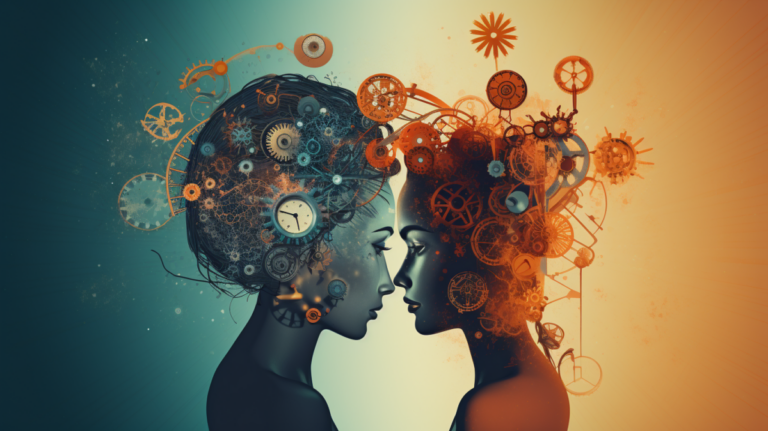Emotional intelligence (EI) refers to the ability to recognize, understand, manage, and effectively use emotions in oneself and others. Originally popularized by psychologists Peter Salovey and John D. Mayer in the early 1990s, and later by author Daniel Goleman, the concept has gained wide acceptance in fields ranging from psychology to business. Emotional intelligence is often framed as consisting of multiple components:
Self-Awareness
This involves recognizing one’s emotions and their impact on thoughts and actions. Self-aware individuals are better able to understand their strengths and weaknesses, contributing to higher self-esteem and a more grounded sense of self.
Self-Regulation
This aspect concerns the ability to control or redirect disruptive emotions and adapt to changing circumstances. Self-regulation aids in problem-solving and decision-making by providing emotional balance.
Motivation
This facet of emotional intelligence encompasses the drive to achieve goals. It’s not just about external rewards, but also involves internal factors like curiosity, passion, and fulfillment.
Empathy
Empathy involves understanding and sharing the feelings of others, which is crucial for effective interpersonal relationships. It enables people to connect on a deeper level and facilitates compassionate action.
Social Skills
This includes a range of interpersonal skills, such as effective communication, conflict resolution, and the ability to build and maintain relationships. People with strong social skills are often more successful in both their personal and professional lives.
Practical Applications
Emotional intelligence has practical applications in various areas like leadership, team collaboration, and customer relations. In the workplace, employees with high EI are often better team players and are more adaptable to change. It’s also a sought-after quality in leaders, as it enables them to inspire and guide their teams more effectively.
Psychological Research
Emotional intelligence has been the subject of much research to understand its role in life success, mental health, and relationships. Studies have found a correlation between high EI and positive outcomes in these areas, although it’s not a guarantee for success.
Assessment and Development
Various tools and assessments exist to measure emotional intelligence, including self-report questionnaires and performance-based tests. Emotional intelligence is considered a skill that can be developed and improved over time through training and practice.
In summary, emotional intelligence is a multi-faceted skill set that impacts many areas of life, from personal well-being to career success. It’s a topic of ongoing research and increasingly considered vital in the modern world.
